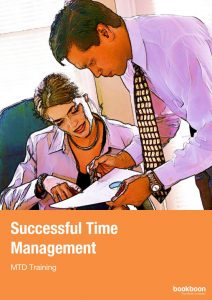Project Management: The 7 Most Important Project Management Skills

Managing a project from start to finish isn’t a simple task. Project Managers are responsible for the success of a project and achieve this by managing teams, communicating with upper management, delegating, organising and much more. Whether you are new to project management or have been managing projects for years, there are a few key skills that every Project Manager should develop. Here are the 7 most important project management skills:
Leadership
A Project Manager is not only in charge of seeing a project through to its successful completion but is also responsible for leading a team to achieve that goal. Project managers have to have strong interpersonal and leadership skills in order to successfully motivate and delegate within a team to get the job done.
Master the art of leadership with our eBook, The Experts Teach: Leadership Skills.
Communication
 Having successful communication with everyone involved with the project including members of the team, stakeholders, upper management, and clients is essential to your success as a Project Manager. Communication skills are arguably the most important skills any leader can possess.
Having successful communication with everyone involved with the project including members of the team, stakeholders, upper management, and clients is essential to your success as a Project Manager. Communication skills are arguably the most important skills any leader can possess.
Improve your communication with our eBook Communication Skills.
Planning and Goal-setting
Managing a project often means mapping out not only the final goal: completing the project, but every step along the way as well. Mastering goal-setting is a feat every Project Manager could benefit from. Using goal-setting tools such as starting with your end goal in mind and moving backward, attaching a reward or feeling to your end goal and creating goals that are Specific, Measurable, Attainable, Realistic and Time-bound (SMART) can help with the goal-setting process.
Get goal-setting savvy with our eBook Goal-setting for Success.
Time-Management
 Managing one’s own time can be difficult in itself, but managing the schedules and deadlines of an entire team of people can be a challenge for Project Managers with a gap in their time-management skills. Making everyone aware of schedules, having a collaborative list of tasks and deadlines and having regular meetings are all great ways to keep up with tasks and effectively manage time.
Managing one’s own time can be difficult in itself, but managing the schedules and deadlines of an entire team of people can be a challenge for Project Managers with a gap in their time-management skills. Making everyone aware of schedules, having a collaborative list of tasks and deadlines and having regular meetings are all great ways to keep up with tasks and effectively manage time.
Learn the secrets of time-management with our eBook Successful Time-Management.
Risk-Management
In project management, managing risk refers to the process in which you identify, analyse, and minimise potential challenges and problems that could negatively impact the success of a project or deflect it from reaching its ultimate goal. These risks can be found anywhere from potential inter-team conflict to budgeting issues. If project risks aren’t identified, avoided or rectified, projects can go over budget, become delayed, or even brought to a complete standstill. Avoiding and managing risk should not only occur before work on the project begins but throughout the process and even following its completion.
Avoid risks before they happen and manage problems when they occur with skills from our eBook Managing Project Risk.
Manage risk and learn the best problem-solving tips with our weekly newsletter #FrictionlessFriday.
Creative Problem-solving
As much as Project Managers can prepare for problems with good risk management, issues and challenges are inevitable and it is up to  Project Managers to properly manage them. Small problems most often lead to conflict because those in charge were unable to come up with a workable solution. Creative problem solving, an in-demand skill for all project managers, requires training in skills such as decision making, collaboration, conflict analysis, and emotional intelligence.
Project Managers to properly manage them. Small problems most often lead to conflict because those in charge were unable to come up with a workable solution. Creative problem solving, an in-demand skill for all project managers, requires training in skills such as decision making, collaboration, conflict analysis, and emotional intelligence.
Check out our eBook Creative Problem Solving.
Critical-thinking
Project managers must be able to use critical thinking skills to analyse how a team might work, how all aspects of a project will come together, which areas team members are strong in versus where they need to develop as well as being self-critical. Self-reflection lets us prepare for how we will likely handle challenging or unexpected scenarios a project may throw at us. In any situation in which you as a Project Manager are required to make a decision, ensure you gather all the relevant information and go through it with a critical eye. Sorting information into parts, comparing and analysing it often helps you come up with a brand new outlook or idea that, without thinking critically, may not have come to you.
Develop this highly in-demand soft skill with our eBook Thinking Skills.
Did you know you could access all our Project Management skills eBooks and 1,700+ other personal development eBooks for free (no strings attached) for the first 30 days? Sign up for a free trial of Bookboon Premium.




